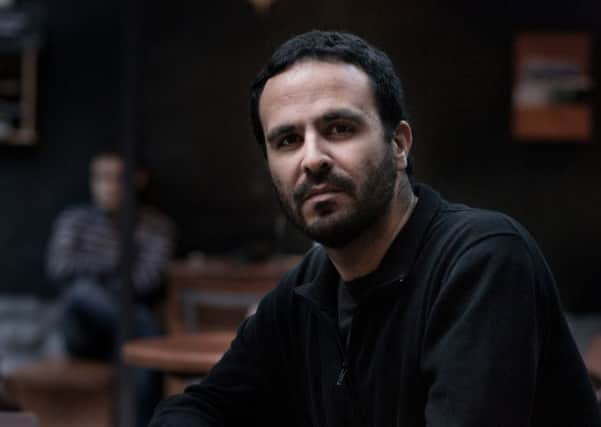True fiction of the Nazis' director of photography


Though never a member of the Nazi Party, he also worked as the official photographer for Marshal Rommel and the Afrika Korps. After the war he was blacklisted in Germany and in 1950 he emigrated with his wife and three daughters to South America, first to Chile and then Bolivia.
There he made documentary films, one about the search for a lost Inca city, and then bought a farm where he would live until he died in his nineties.
Advertisement
Hide AdAdvertisement
Hide AdThe oldest daughter, Monika, was his favourite, working with him on his documentaries. She married another German exile, a dull businessman. Oppressed by the poverty and social inequalities of Bolivia, she founded an orphanage and was then drawn into radical politics. Adoring and hero-worshipping Che Guevara, she became a guerrilla fighter or terrorist and later his avenger.
Her commitment separated her from the father she had loved. She was killed in an ambush by the security forces. The two other sisters led more normal lives, Heidi returning to Germany where she became a successful businesswoman, the youngest, Trixi, remaining unhappily in Bolivia.
This is tremendous material for a novel, dramatic and full of moral complexity. No wonder the young Bolivian novelist Rodrigo Hasbún was attracted to it. What is remarkable, however, is what he has made of it. The easy option, which someone less talented and original might have taken, would have been to write a political thriller. All the material is here in waiting for such a book that, well done, would have sold in airports worldwide. Nazi background, exotic locations, Che Guevara, police brutality, a beautiful and idealistic assassin; altogether a rich stew. Maybe somebody will still write that novel, heavily weighted with research, and it will be a big success.
Hasbún’s success is of a different order. He has written a spare narrative, little more than a novella in length, in short, impressionistic chapters, spoken through the voices of Monika (addressing herself as “you”), the other daughters, the brother-in-law who loved her too late and lost her, and an unidentified narrative voice.
Advertisement
Hide AdAdvertisement
Hide AdEverything in the drama is here counterpointed with the ordinariness of life in a land where you don’t feel at home and yet seek to belong.
The title indicates where his interest lies. Affections is the theme, affections not strong enough to hold a family together. The father is presented as a “phantom”; you’re always aware of him and he is always slipping out of sight. Monika is a mystery. What turns a beautiful, intelligent girl, so close to her father, into an activist, terrorist and assassin? Events and the reflections they give rise to are presented to us, now in memory, now in a shifting present. But things get “distorted and lost in memory.” “It’s not true,” Trixi thinks, “that memory is a safe place. We end up,” she says, ”turning away from the people we love the most.” She does so painfully and reluctantly. The middle sister, Heidi, does so determinedly. But actions have consequences for other people. You get blamed for what you aren’t yourself responsible for. Trixi comes to the sad conclusion that “knowing how to be alone was my one great achievement in life”. Or perhaps that’s not so sad, but a sort of success. Hasbún is a writer who invites you to look at the other side of the coin.
This is a finely atmospheric book, admirably translated from the Spanish by Sophie Hughes. It’s a work of sympathetic imagination, written with cool economy, elegance and understanding. It’s a reconstruction of real lives, real historical events, but Hasbún’s achievement is to make it perfectly fictional, which is to say truer than fact.
I read it straight through first, with no idea of its historical truth, no knowledge of Hans Ertl beyond the name, no memory of the woman who in Hamburg assassinated the Bolivian diplomat who had been the policeman who ordered the hands of the dead Che Guevara be cut off. It made the second reading interesting in a different way, but didn’t enrich it. It reminds you how much of life that really matters goes on in the mind and heart.